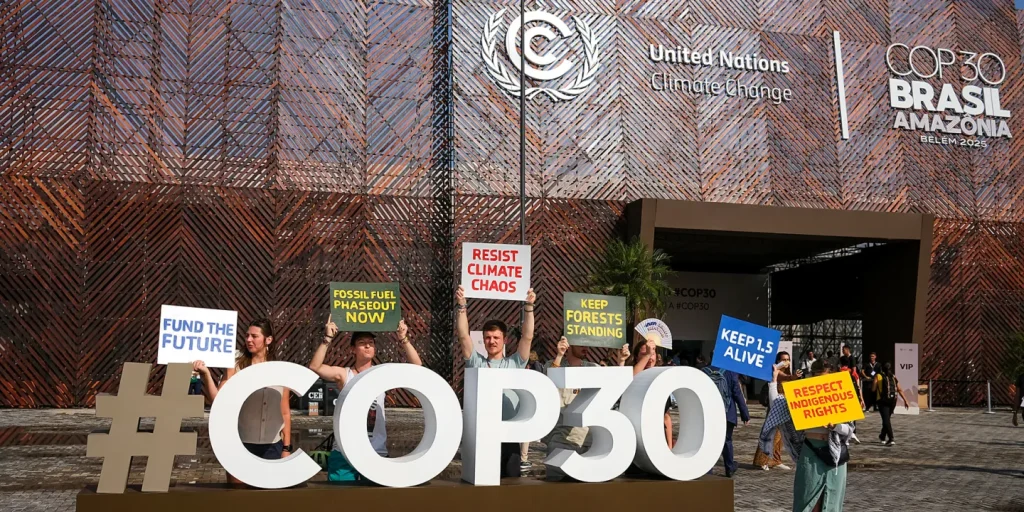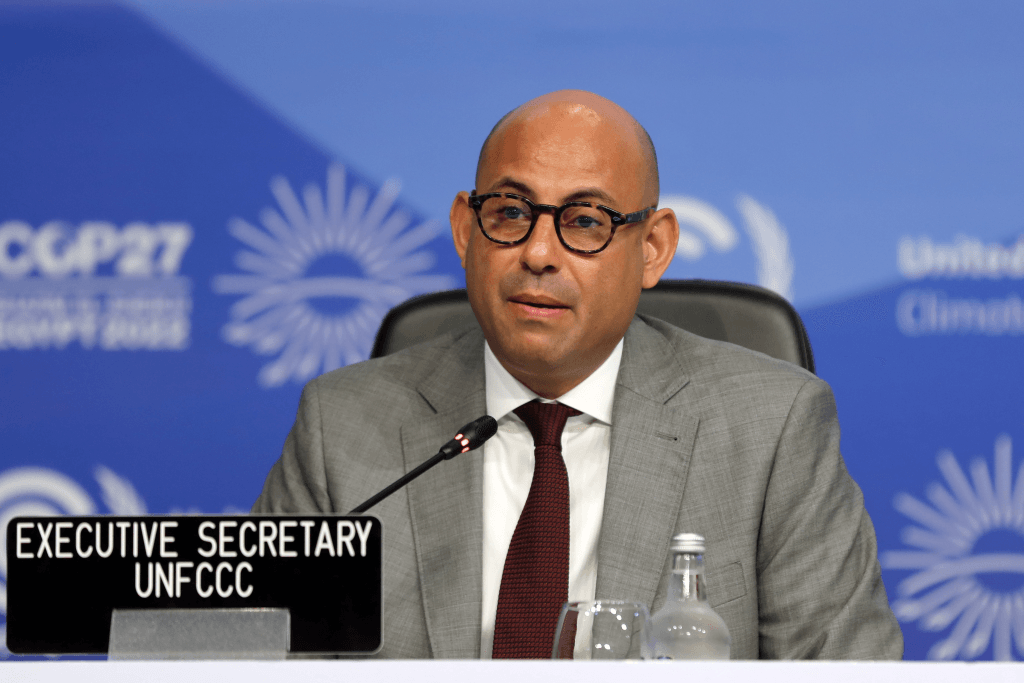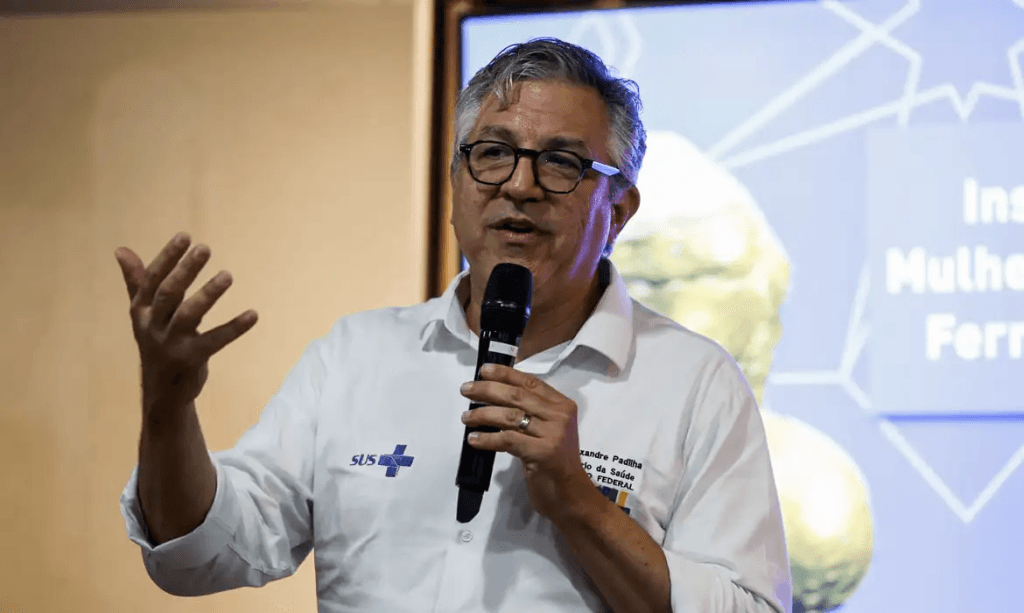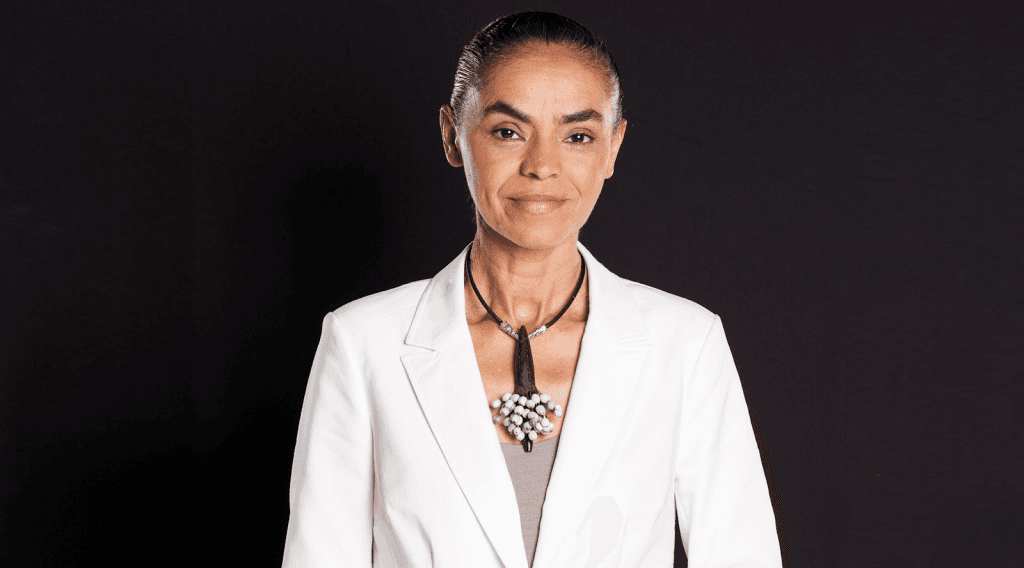COP30: Day 4 Recap

• Countries endorsed the Belém Health Action Plan, backed by USD 300 million in philanthropic funding to build climate-resilient health systems.
• New education, justice and early-warning initiatives expanded COP30’s adaptation agenda, linking resilience to social equity and human rights.
• FINI launched with a target of USD 1 trillion in adaptation project pipelines by 2028, marking a major push to convert national plans into investable projects.
Belém Positions Human Well-Being at the Heart of Climate Action
Day four of COP30 shifted the centre of gravity in climate diplomacy toward the human impacts of a warming world, with health, education and justice framed as the foundations of global adaptation. Ministers, development banks and civil society leaders converged around a shared message: resilience depends on protecting people first.
The session opened with the adoption of the Belém Health Action Plan, a joint effort between Brazil and the World Health Organization to help countries build climate-resilient health systems. The plan has received 80 endorsements so far and is supported by USD 300 million from more than 35 philanthropic institutions. UNFCCC Executive Secretary Simon Stiell said the Plan’s launch reflects “a whole-of-society approach” to climate-linked health risks and the need to embed equity into adaptation.

Brazil’s Minister of Health Alexandre Padilha added that governments have “no alternative but to adapt and confront climate change,” highlighting the demand for surveillance systems, workforce training and integrated planning to protect vulnerable communities.

Education Becomes a Structural Component of Adaptation
Education leaders used COP30 to strengthen the Greening Education Partnership, convening ministers and UNESCO to advance climate literacy as a national and societal priority. Brazil’s Education Minister Camilo Santana emphasised that education must equip young people “not only to understand the world, but to change it,” as countries look to embed climate knowledge in curricula, assessments and teacher training.

The roundtable introduced the draft PISA framework on climate literacy, aiming to define the competencies students will need to contribute to adaptation and long-term resilience.
Turning National Adaptation Plans into Investable Pipelines
A major financial development came with the launch of the FINI initiative, led by the Atlantic Council’s Climate Resilience Center and the NRDC. FINI aims to generate USD 1 trillion in adaptation project pipelines by 2028, drawing 20% from private investors and leveraging USD 500 million from multilateral and philanthropic actors for risk assessment and local capacity building.
By focusing on the operational gap between National Adaptation Plans and bankable projects, FINI seeks to shift adaptation from an unfunded aspiration to a structured investment opportunity for countries and capital providers.
Justice and Human Rights Enter the Negotiation Arena
COP30’s Justice Day placed legal institutions at the centre of climate governance. The President of Brazil’s National Council of Justice, Justice Edson Fachin, called for a global network of judicial cooperation to defend what he described as the “Common Home,” arguing that courts are positioned to enforce fairness and protect nature.

COP30 President Ambassador André Corrêa do Lago urged jurists to help move climate policy from decisions to implementation, stressing that the judiciary must act as both arbiter and accelerator.
RELATED ARTICLE: Schneider Electric Backs Brazil’s Industrial Decarbonization push at COP30
Brazil’s Environment Minister Marina Silva tied climate responsibility to ethics and justice, noting that punishing environmental harm “is an act of love for humanity” as countries face increasingly documented evidence of climate impacts.

Debt Relief and Early Warning Systems Gain Momentum
Development finance institutions advanced a series of regionally focused resilience tools. The IDB, CAF and the Caribbean Development Bank launched a Multi-Guarantor Debt-for-Resilience Joint Initiative to help Caribbean governments alleviate debt burdens while strengthening disaster preparedness.
Early Warning Systems also featured prominently. A new global status report showed that more than 60% of countries now have multi-hazard systems in place. To accelerate coverage, the CREWS initiative introduced its Strategy 2030, supported by contributions from Luxembourg, Monaco, Norway and several EU members. Belgium, Ireland and Spain also pledged new support to improve surface weather observations through the Systematic Observations Financing Facility.
Carbon Accounting Collaboration Intensifies
ISO and the GHG Protocol agreed on priority areas for cooperation to improve comparability across carbon accounting methodologies. Dan Ioschpe, COP30 High Level Climate Champion, said robust accounting is “a strategic subject” that enables countries and companies to turn pledges into measurable progress.

A Broader Push for Information Integrity
Brazil unveiled progress on its national chapter of the Global Initiative for Information Integrity on Climate Change, reflecting growing concern that reliable information is essential for public trust, policy design and climate governance.
A Human-Centric Adaptation Agenda With Global Implications
Taken together, day four’s actions reflected a broader repositioning of adaptation as a human-protection agenda rather than an abstract policy track. From health financing to education reform, judicial engagement to early-warning investment, COP30’s narrative expanded beyond emissions to the systems that sustain lives and livelihoods.
As the conference moves toward negotiations, the convergence of social, financial and governance initiatives in Belém is likely to influence how countries frame adaptation within their national strategies. For global investors and policymakers, the message is clear: climate resilience hinges not only on technology and finance, but on institutions that safeguard people and uphold justice in an increasingly volatile world.
Follow ESG News on LinkedIn








